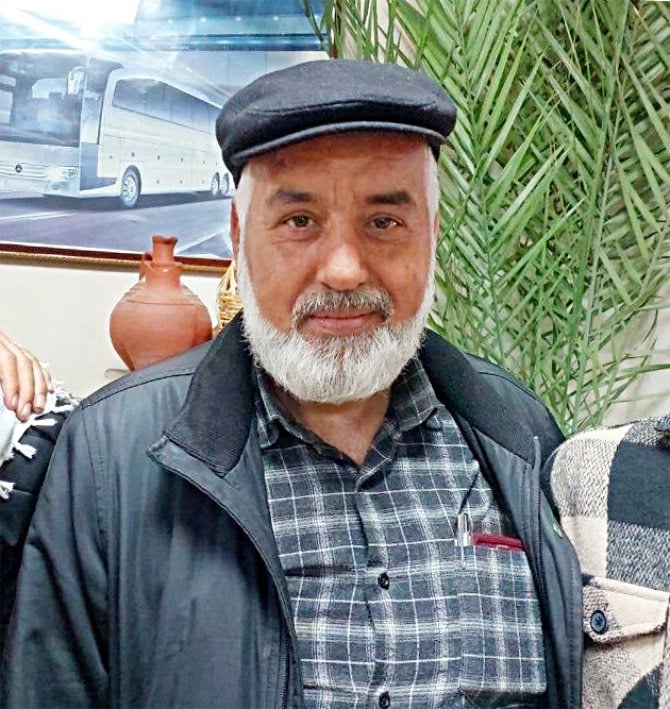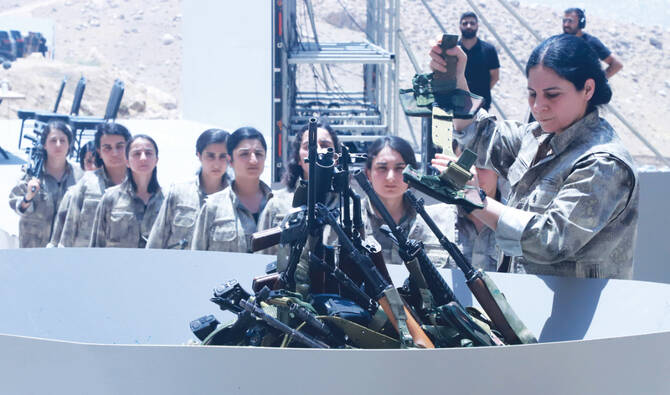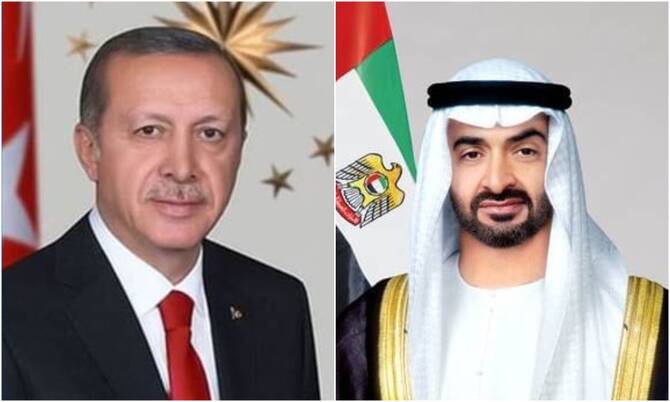Menekse Tokyay
ANKARA: Ahmet Hamo, 53, recently received his call-up letter for military service in Turkiye after he voluntarily applied to the authorities — becoming the first Syrian refugee with citizenship to be conscripted into the nation’s army.
Hamo came to Turkiye as a refugee amid the Syrian civil war that started in 2011. He applied for military service after becoming a citizen.
Hamo joined his unit in the central province of Amasya this weekend.
The newly conscripted soldier spent the previous weekend with his family and friends who came to bid him farewell. They placed him on their shoulders and danced to Arab songs.
“I feel respect for the Turkish nation and Turkish flag. My mother was of Turkish descent. Fortunately I will be under the protection of the Turkish flag,” he told reporters.
He became the first-ever Syrian refugee with citizenship to be called up for military service at his request. It is uncommon in Turkiye to have people called up at his age.
Military service in Turkiye is compulsory for all male citizens between 20 and 41 years of age. According to the Turkish Law of Recruitment that was amended in 2019, the conscription status of refugees with Turkish citizenship is classified based on the age at which they become citizens.
Under the same law, foreigners who become citizens are exempted from military service if they can prove that they already undertook this duty in their country of origin, or are older than 22 at the time they receive citizenship.
Metin Corabatir, president of the Ankara-based Research Center on Asylum and Migration, told Arab News that Hamo should have been exempted from military service due to his age and the fulfillment of his duty in Syria — and as a goodwill gesture because he has shown his loyalty to Turkiye.
“Those who gained Turkish citizenship have already been staying in this country for a while, far away from the war in their homeland. Therefore, it is an obligation of citizenship for males to perform military duty provided that they have already overcome (the) psychological trauma of the war they escaped from,” he added.
Now, all eyes are set on the next stage — whether Syrians will vote in the upcoming presidential and parliamentary elections in Turkiye this year. As of December 2022, around 223,000 Syrian nationals were given Turkish citizenship, while around 126,000 are eligible to vote.
Turkiye’s political parties will have to take into consideration the votes of Syrians-turned-citizens and adjust their electioneering accordingly because these people are trying to show that they are not a burden but an integral part of society, Corabatir said.
According to Muge Dalkiran, visiting fellow at the Austrian Institute for International Affairs, recruitment of naturalized refugees into military service is an underestimated but still important topic to discuss in terms of integration policies.
“There (were) certain debates with regard to recruiting immigrants for the US army after the Second World War and citizenship was provided through military service. Also, recently there are some discussions on whether citizens with ‘migration background’ can be recruited by the German army due to the high number of ‘migration background’ (people in the) population,” she told Arab News.
“Even though this topic still seems controversial, the experts highlight the need for young people, with technical skills and different professions with special training, (to join) the army in the future since military service is no longer mandatory. It is also considered as part of integration, especially for those who were born in Germany,” Dalkiran said.
The public reaction to the news did see some criticism on social media, with some saying that Hamo should have rather defended his home country first before joining Turkiye’s army.
Dalkiran said it was also a concern that people are recruited into Turkiye’s army who may still not have fully recovered from previous traumas and violence.
“This single case should not lead to any kind of coercion for the rest of the Syrians who recently obtained citizenship,” she added.
Dalkiran also said that perhaps military service should be secondary to other societal needs. “Before these doubts are cleared, recruitment for the military service would only increase the polarization. With regard to social cohesion, I think there are other priorities to consider such as full integration into the labor market,” she said.
Dalkiran said issues around migration and refugees remains complex, which require long-term solutions.






















